Filter by
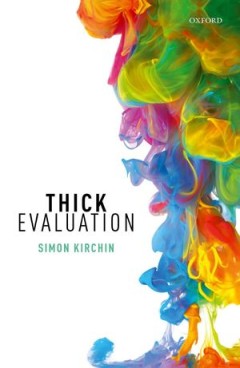
Thick Evaluation
"We use evaluative terms and concepts every day. We call actions right and wrong, teachers wise and ignorant, and pictures elegant and grotesque. Philosophers place evaluative concepts into two camps. Thin concepts, such as goodness and badness, and rightness and wrongness have evaluative content, but they supposedly have no or hardly any nonevaluative, descriptive content: they supposedly give…
- Edition
- -
- ISBN/ISSN
- 9780198803430
- Collation
- -
- Series Title
- -
- Call Number
- -
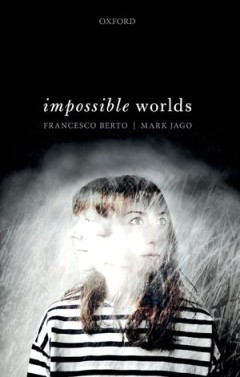
Impossible Worlds
The latter half of the 20th Century witnessed an ‘intensional revolution’: a great collective effort to analyse notions which are absolutely fundamental to our understanding of the world and of ourselves – from meaning and information to knowledge, belief, causation, essence, supervenience, conditionality, as well as nomological, metaphysical, and logical necessity – in terms of a singl…
- Edition
- -
- ISBN/ISSN
- 9780198812791
- Collation
- -
- Series Title
- -
- Call Number
- -
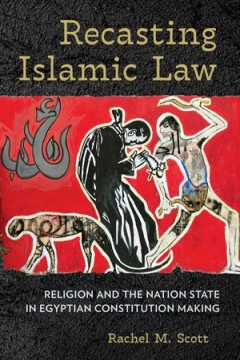
Recasting Islamic Law
By examining the intersection of Islamic law, state law, religion, and culture in the Egyptian nation-building process, Recasting Islamic Law highlights how the sharia, when attached to constitutional commitments, is reshaped into modern Islamic state law. Rachel M. Scott analyzes the complex effects of constitutional commitments to the sharia in the wake of the Egyptian revolution of 2011. …
- Edition
- -
- ISBN/ISSN
- 9781501753992
- Collation
- -
- Series Title
- -
- Call Number
- -
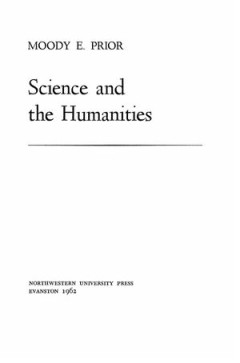
Science and the Humanities
Science and the Humanities contains five lectures concerning the discussion of the relation of science and the humanities, focusing on the work of thinkers such as James B. Conant and C. P. Snow.
- Edition
- -
- ISBN/ISSN
- 9780810138650
- Collation
- -
- Series Title
- -
- Call Number
- -
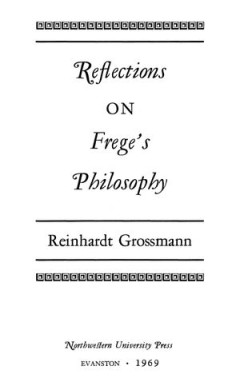
Reflections on Frege's Philosophy
In Reflections on Frege’s Philosophy, Reinhardt Grossmann investigates the most important themes in the philosophy of Friedrich Ludwig Gottlob Frege (1848-1925): his distinction between objects and functions, his characterization of numbers as nonmental classes, his theory of sense and reference, and his ontology of truth-values. Grossmann examines Frege’s solutions to basic philosophical p…
- Edition
- -
- ISBN/ISSN
- 9780810139565
- Collation
- -
- Series Title
- -
- Call Number
- -
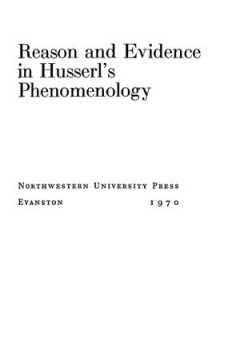
Reason and Evidence in Husserl's Phenomenology
In Reason and Evidence in Husserl’s Phenomenology, David Michael Kleinberg-Levin examines Husserl’s concept of necessary, a priori, and absolutely certain indubitable evidence, which he terms apodictic, and his related concept of complete evidence, which he terms adequate. To do so it explicates some of the more general relevant features of phenomenology as a whole.
- Edition
- -
- ISBN/ISSN
- 9780810138513
- Collation
- -
- Series Title
- -
- Call Number
- -
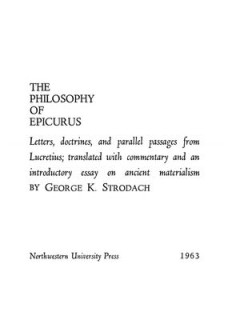
The Philosophy of Epicurus
The teachings of Epicurus, whose philosophy focused on the pursuit of happiness, attracted adherents throughout the ancient Mediterranean world and deeply influenced later European thought. The Philosophy of Epicurus contains a long introductory essay on the philosophy of Epicurus and a selection of primary texts. George K. Strodach translates excerpts from The Life of Epicurous by Diogenes Lae…
- Edition
- -
- ISBN/ISSN
- 9780810138735
- Collation
- -
- Series Title
- -
- Call Number
- -
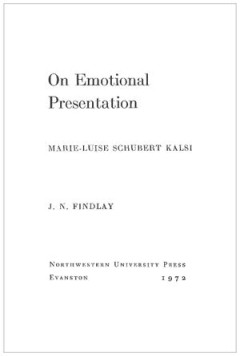
On Emotional Presentation
First published in German in 1917, On Emotional Presentation investigates the interrelation of emotions, values, and obligation. Alexius Meinong presents a realist theory of values in which values are given in and through emotion but are also ontologically independent of emotion or any subjective attitude. Meinong’s first discusses the concept of “intellectual presentation” (psychic exper…
- Edition
- -
- ISBN/ISSN
- 9780810139701
- Collation
- -
- Series Title
- -
- Call Number
- -
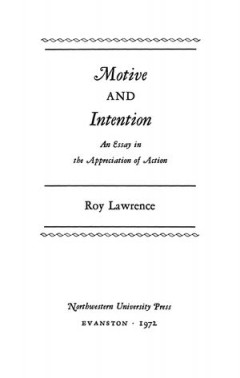
Motive and Intention
Motive and Intention is a critique of certain conceptual foundations of the description and judgment of human action. Drawing on sources such as narrative history, Roy Lawrence analyzes examples of such assessments and provides and independent base for appraising familiar and tenacious theoretical presumptions. In so doing he illuminates many persistent issues of common interest in the social s…
- Edition
- -
- ISBN/ISSN
- 9780810139589
- Collation
- -
- Series Title
- -
- Call Number
- -
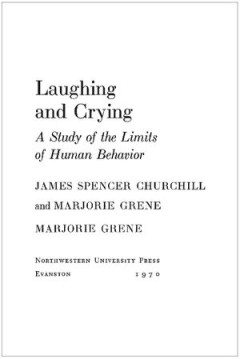
Laughing And Crying
First published in German in 1940 and widely recognized as a classic of philosophical anthropology, Laughing and Crying considers this significant pair of types of expressive behavior, considering them both in themselves and in their relation to the fundamental nature of humanity.
- Edition
- -
- ISBN/ISSN
- 9780810139725
- Collation
- -
- Series Title
- -
- Call Number
- -
 Computer Science, Information & General Works
Computer Science, Information & General Works  Philosophy & Psychology
Philosophy & Psychology  Religion
Religion  Social Sciences
Social Sciences  Language
Language  Pure Science
Pure Science  Applied Sciences
Applied Sciences  Art & Recreation
Art & Recreation  Literature
Literature  History & Geography
History & Geography